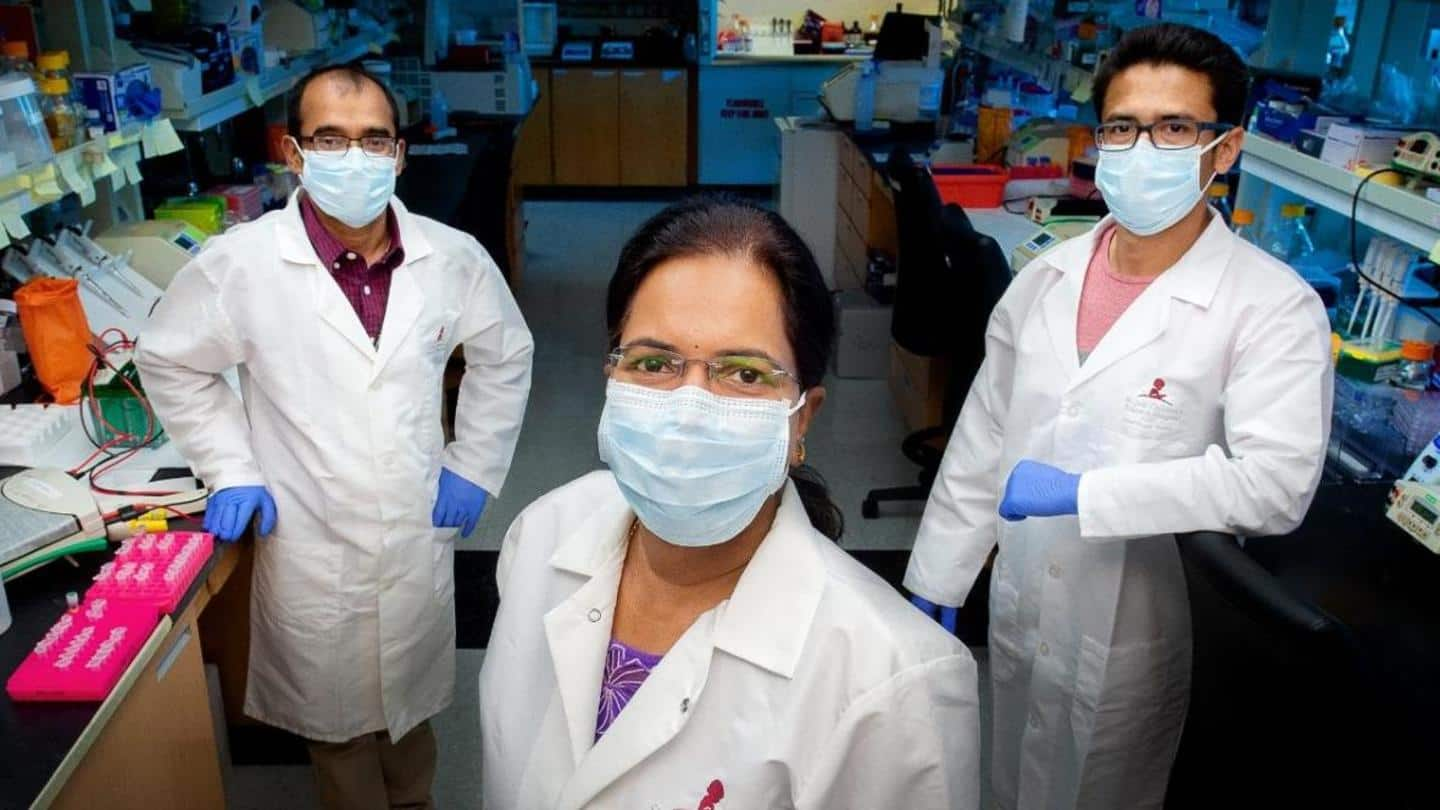
Indian-origin scientists in US discover possible COVID-19 treatment
What's the story
A team of Indian-origin scientists in the United States has discovered a possible treatment for COVID-19.
St. Jude Children's Research Hospital scientists focused on ways to prevent life-threatening inflammation, lung damage, and organ failure in patients with COVID-19.
The viral disease has killed 1.3 million people globally and sickened a total of 57.5 million.
Here are more details.
Inflammation
COVID-19 infection causes cytokine release, triggering inflammation
COVID-19 is caused by the coronavirus SARS-CoV-2. An infection leads to increased blood levels of multiple cytokines.
Cytokines are proteins secreted mainly by immune cells to ensure a rapid response to restrict the virus. Some of them also trigger inflammation.
High cytokine levels can lead to "cytokine storms" which can cause inflammation, lung damage, and organ failure in COVID-19 patients.
Research
Researchers identified cytokine duo responsible for cell death
The specific pathways leading to cytokine storms and the after-effects in COVID-19 had remained unclear.
The St. Jude study, published in the Cell journal on Wednesday, identified a combination of two cytokines that induced a form of inflammatory cell death in mice with COVID-19.
The corresponding author Thirumala-Devi Kanneganti (vice-chair of the St. Jude Department of Immunology) has previously described this phenomenon as "PANoptosis."
Findings
PANoptosis leads to further inflammation through cell death
The cytokines identified are tumor necrosis factor (TNF)-alpha and interferon (IFN)-gamma.
PANoptosis is a unique type of cell death which includes a combination of three different cell death pathways—pyroptosis, apoptosis, and necroptosis.
It further triggers inflammation through cell death, leading to more cytokines and inflammatory molecules.
The scientists also noted that blocking individual cell death pathways was ineffective in stopping cell death.
Treatment
Neutralizing antibodies against TNF-alpha, IFN-gamma could be possible treatment
The scientists then identified several proteins, including caspase-8 and STAT1, that are essential for PANoptosis. Deleting those proteins blocked PANoptosis in innate immune cells called macrophages.
Neutralizing antibodies against TNF-alpha and IFN-gamma are already in use.
The scientists found that treatment with these antibodies protected mice from death associated with SARS-CoV-2 infection, sepsis, HLH (hemophagocytic lymphohistiocytosis), and cytokine shock.
Quote
'Therapies targeting this cytokine combination are candidates for clinical trials'
Kanneganti said in a statement, "The results also suggest that therapies that target this cytokine combination are candidates for rapid clinical trials for treatment of not only COVID-19 but several other often fatal disorders associated with cytokine storm."
Bhesh Raj Sharma—co-first author along with Rajendra Karki—said, "Indeed, understanding how PANoptosis contributes to disease and mortality is critical for identifying therapies."